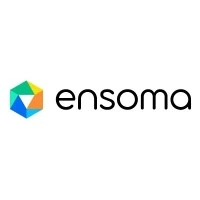
Ensoma Gets Pediatric Disease and Orphan Drug Designations for EN-374 in Chronic Granulomatous Disease
Ensoma, a genomic medicines company focused on developing one-time, in vivo treatments to precisely and durably engineer the hematopoietic system, announced that the U.S. Food and Drug Administration (FDA) has granted both rare pediatric disease and orphan drug designations to its lead program, EN-374, for treating X-linked chronic granulomatous disease (X-CGD). The company plans to submit an investigational new drug (IND) application for EN-374 in the first half of 2025.
Chronic granulomatous disease (CGD) is a rare and life-threatening genetic disorder that significantly compromises the immune system. This condition leaves affected individuals vulnerable to recurrent and severe bacterial and fungal infections, often resulting in chronic inflammation, serious complications, and dysregulated immune responses. CGD occurs in approximately 1 in 100,000 to 200,000 live births, and the average life expectancy for individuals with CGD is around 45 years.
X-linked chronic granulomatous disease (X-CGD) is the most common form of CGD, accounting for 60-70% of CGD cases. It is caused by mutations in the CYBB gene, which impair the function of neutrophils, the white blood cells responsible for fighting infections. Without functional neutrophils, patients are unable to adequately respond to infections, leading to recurrent and sometimes life-threatening episodes.

To address this, Ensoma, a genomic medicines company, has developed EN-374, a potential treatment designed to deliver a functional CYBB gene directly to hematopoietic stem cells (HSCs) in vivo. The therapy utilizes a promoter that selectively targets neutrophils—the primary cell type affected by X-CGD—ensuring the gene is expressed specifically where it is needed. The goal is to restore the ability of patients’ immune systems to fight infections by enabling the production of functional neutrophils.
Recently, Ensoma announced that the U.S. Food and Drug Administration (FDA) has granted both Rare Pediatric Disease and Orphan Drug designations to EN-374. These designations highlight the significant unmet medical need in X-CGD and recognize the potential of EN-374 to offer a transformative treatment option for affected patients.
Impact of Rare Pediatric Disease and Orphan Drug Designations
The FDA’s Rare Pediatric Disease designation is awarded to treatments for serious or life-threatening rare diseases that predominantly affect children under the age of 18, and impact fewer than 200,000 people in the United States. This designation offers incentives to promote the development of therapies that can address these critical needs. In the case of EN-374, if a Biologics License Application (BLA) is approved, Ensoma may be eligible to receive a Priority Review Voucher from the FDA, which can expedite the approval process for future drugs.
The FDA’s Orphan Drug designation, on the other hand, applies to therapies that aim to prevent, diagnose, or treat rare diseases affecting fewer than 200,000 people in the U.S. This designation provides several potential benefits for Ensoma, including up to seven years of market exclusivity following approval, tax credits for qualifying clinical trials, and exemptions from certain FDA fees.
“These designations from the FDA highlight the significant medical need in chronic granulomatous disease,” said Drew Dietz, M.D., MSCR, vice president of clinical development at Ensoma. “Current treatments—such as antibiotics, antifungals, interferon gamma, and allogeneic stem cell transplantation—offer limited benefits and come with significant burdens. EN-374 represents the first in vivo HSC-directed therapy for X-CGD, building on a mechanism that has been validated ex vivo.
This innovative approach is designed to function for any CYBB mutation, offering the potential to improve upon the benefits of ex vivo gene therapies. In addition to being simpler, this method may also be safer and more accessible for patients. We’re excited to be advancing this groundbreaking therapy and remain on track to submit an investigational new drug (IND) application for EN-374 in the first half of 2025.”
Ensoma’s Platform and Vision
Ensoma is focused on developing curative medicines through precision in vivo cellular engineering. The company’s platform integrates proprietary base editing and gene integration technologies with high-efficiency, virus-like particles (VLPs) to deliver one-time, durable genetic treatments in an outpatient setting. Ensoma is particularly focused on in vivo engineering of hematopoietic stem cells (HSCs) to address a wide range of genetic diseases, immune disorders, and cancers.
The company’s vision is to provide patients with innovative genomic medicines that offer long-term, potentially curative treatments, minimizing the need for repeated interventions. By leveraging its expertise in gene therapy and in vivo approaches, Ensoma aims to transform the landscape of medicine, offering patients access to therapies that were once thought impossible.
Ensoma is supported by top-tier investors and driven by a passionate team committed to advancing genomic medicine globally. Headquartered in Boston, Ensoma continues to make strides in its mission to revolutionize the treatment of genetic diseases with cutting-edge therapies like EN-374 for X-CGD.
In conclusion, the FDA designations granted to EN-374 underscore the potential of this novel therapy to address a critical unmet need in the treatment of X-CGD. As the company moves toward submitting its IND application, there is optimism that EN-374 could significantly improve the lives of patients with this debilitating condition, offering them hope for a better future free from the chronic infections and complications that currently define their daily lives.




